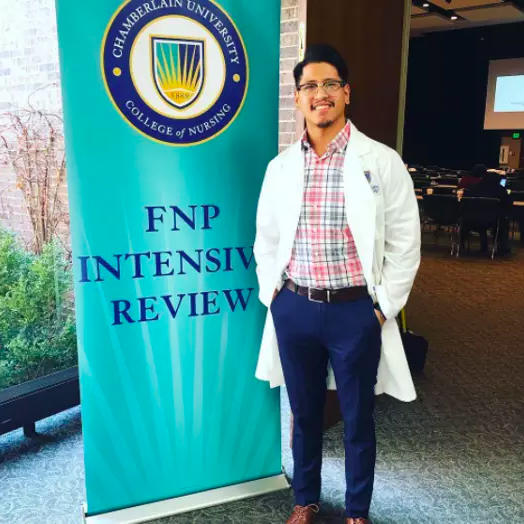Chamberlain University Nurse Practitioner

A surge in demand for accessible healthcare is reshaping the landscape of advanced practice nursing, placing a spotlight on institutions like Chamberlain University and its Nurse Practitioner (NP) programs. But questions are being raised about the quality of education and clinical preparedness of graduates from rapidly expanding programs, especially within the for-profit sector.
The rising need for primary care providers, particularly in underserved communities, fuels the growth of NP programs. Simultaneously, concerns exist about ensuring graduates possess the skills and knowledge to deliver safe and effective patient care. This article examines the role of Chamberlain University's NP programs in addressing the healthcare gap, while also exploring the challenges and controversies surrounding online and accelerated nursing education.
Addressing the Healthcare Gap: Chamberlain's Role
Chamberlain University, a for-profit institution owned by Adtalem Global Education, has significantly expanded its NP program offerings in recent years. This expansion aims to address the critical shortage of primary care providers, especially in rural areas and underserved urban communities. The university offers various NP specializations, including Family Nurse Practitioner (FNP), Adult-Gerontology Acute Care Nurse Practitioner (AGACNP), and Psychiatric Mental Health Nurse Practitioner (PMHNP).
According to Chamberlain University's official website, its NP programs emphasize a practice-focused curriculum, designed to prepare graduates for direct patient care. The programs incorporate simulation labs, case studies, and clinical rotations to provide students with hands-on experience. The university claims its graduates are well-prepared to meet the evolving healthcare needs of diverse populations.
Concerns and Criticisms: Quality vs. Quantity
However, the rapid growth of for-profit NP programs like those at Chamberlain University has drawn criticism. Some healthcare professionals and academics express concerns about the rigor and quality of online and accelerated nursing education. Critics argue that the emphasis on speed and convenience may compromise the depth of clinical training and critical thinking skills.
A key concern revolves around the availability and quality of clinical placements. Securing sufficient clinical hours with experienced preceptors can be challenging, particularly in competitive healthcare markets. Critics question whether all students receive adequate supervision and exposure to a diverse range of patient populations and medical conditions.
Accreditation and Outcomes: A Closer Look
Chamberlain University's NP programs are accredited by the Commission on Collegiate Nursing Education (CCNE), a nationally recognized accreditation body. Accreditation signifies that the programs meet established standards for curriculum, faculty qualifications, and student outcomes. However, accreditation alone does not guarantee the quality of individual graduates or their preparedness for practice.
Data on board certification pass rates and job placement rates for Chamberlain University NP graduates are publicly available. These metrics can provide insights into the effectiveness of the programs. However, it's important to note that these metrics can vary depending on the specialization and location.
"The proliferation of online NP programs has raised concerns about the clinical competency of graduates," states Dr. Sarah Johnson, a professor of nursing at a public university. "It's crucial to ensure that students receive sufficient hands-on training and mentorship to provide safe and effective patient care."
The Role of Clinical Preceptors and Mentorship
The quality of clinical preceptors and mentorship plays a crucial role in shaping the competency of NP students. Experienced NPs and physicians serve as preceptors, guiding students through clinical rotations and providing feedback on their performance. The availability of qualified preceptors is essential for ensuring that students receive adequate supervision and support.
Some healthcare organizations and professional nursing associations are actively working to address the shortage of preceptors. They are developing mentorship programs and providing resources to support preceptors in their role. Investing in clinical education is critical for ensuring the quality of the NP workforce.
Looking Ahead: Ensuring Competent NP Graduates
Addressing the concerns surrounding NP education requires a multi-faceted approach. This includes strengthening accreditation standards, enhancing clinical training requirements, and promoting mentorship opportunities. Further, increased transparency and data reporting on program outcomes are essential.
As the demand for NPs continues to grow, it's crucial to prioritize the quality of education and clinical preparation. Collaboration between universities, healthcare organizations, and professional associations is essential to ensure that all NP graduates are equipped to provide safe, effective, and patient-centered care. Only then can institutions like Chamberlain University truly fulfill their mission of addressing the healthcare gap while maintaining high standards of practice.

.jpg?itok=-CF5MInU)
















